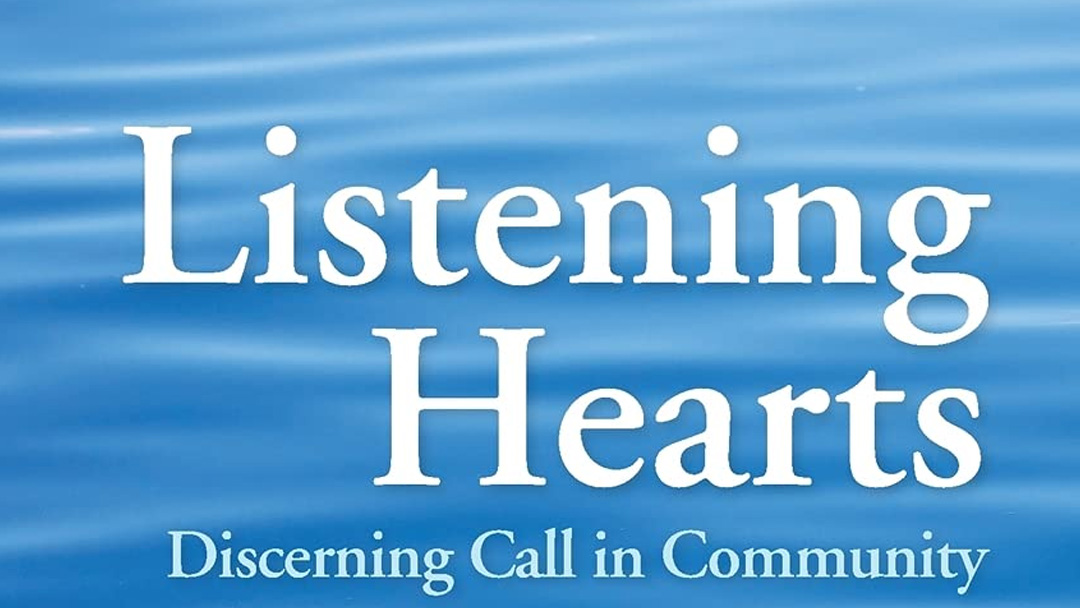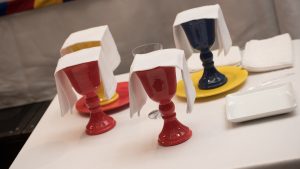Bishop’s Institute
for Discipleship, Leadership and Ministry Formation
CLICK BELOW TO READ THE LATEST FROM THE BISHOP’S INSTITUTE:
Spring 2025 Trainings from the Bishop’s Institute
The Bishop’s Institute, Diocese of Easton Trainings for Eucharistic Ministers, Eucharistic...
We are excited to announce the upcoming Fall 2024 Offerings from the Bishop’s Institute
The Bishop’s Institute, Diocese of Easton Trainings for Eucharistic Minister, Eucharistic Visitor,...
Bishop’s Institute Spring 2024 Trainings
Trainings for Eucharistic Minister, Eucharistic Visitor, and Worship Leader Training March, April...
Listening Hearts Mentor Training

The Bishop’s Institute offers a series of training sessions for people who will prepare others to work in community to discern a call to ministry in each convocation. Through this series of small “retreats” participants will gain an understanding of this practice and be ready to consult with Discernment Groups in local parishes as part of the diocesan response to a person who seeks to clarify a call from God to ministry. After completing this series, participants will train Discernment Groups as they are called and formed to guide the aspirants to come to clarity about and be able to articulate their call.
Eucharistic Minister Training

A Eucharistic Minister is a layperson, licensed by the bishop, to administer the Consecrated Elements at a Celebration of Holy Eucharist. A Eucharistic Minister shall act in concert with and under the direction of a Deacon, if any, or otherwise, the Member of the Clergy or other leader exercising oversight of the congregation or other community of faith. Training participants must be confirmed members in good standing. Participants should obtain and read Manual for Lay Eucharistic Ministers: In the Episcopal Church Paperback by Beth Wickenberg Ely, available online.
Eucharistic Visitor Training

A Eucharistic Visitor is a layperson who has experience as a Eucharistic Minister, has participated in additional training, and is licensed by the bishop for this ministry. A Eucharistic Visitor is authorized to take the Consecrated Elements in a timely manner following a Celebration of Holy Eucharist to members of the congregation who, by reason of illness or infirmity, were unable to be present at the Celebration. A Eucharistic Visitor shall act under the direction of a Deacon, if any, or otherwise, the Member of the Clergy or other leader exercising oversight of the community of faith.
Intergenerational Catechist Leadership Program
Seeking a need to further develop ministries of life-long Christian formation in the Diocese of Easton, Bishop Santosh Marray has envisioned a lay leadership program for those called to do God’s work as Intergenerational Catechist Leaders. The Lay Catechist is a licensed ministry, according to the Canon’s of the Episcopal Church, with the role of serving as “a teacher, lay or ordained who provides instruction in Christian faith” (Canon 4: Sect. 8).
In the ensuing two-years the diocese will vigorously engage in a new program to train and empower lay leadership at the level of Catechist as referenced in Title III Canon 4 Sec 1 (a) of the Constitution and Canons of the Episcopal Church.
The Curriculum has been developed by Dr. Lynn Wiljanen, Director of the Bishop’s Institute. Professor Wiljanen was able to draw information from the Episcopal Church, worldwide Anglican Communion and Diocese to develop one of the best catechist training programs that I have seen in the 43 years of doing this work across the global church. The draft curriculum will soon be circulated, and post-convention exist on the Diocesan website for reviews, comments, suggestions, and inputs from across the diocese. The deadline for submission to this process is the Sunday of Pentecost 2024 with the final draft slated for a summer release. Recruitment of interested lay people begins as of this convention. Ideally, interested individuals should already be serving in the role of one or more of the lay ministries of the church as defined by the said Title III Canon 4. The official commencement of training is October 2024. I encourage you to visit the Bishop’s Institute table for more information. More will be shared at Clergy Conference and through regular publications from the Institute.
ABOUT THE PROGRAM:
According to Title III, Canon 4 of the Episcopal Church, the diocese is responsible for the development, discernment, and support for the gifts of all baptized persons in their ministry as Christians. One area is the development of lay ministries, particularly licensure of catechists. “A catechist is a lay person authorized to prepare persons for Baptism, Confirmation, Reception, and the Reaffirmation of Baptismal Vows, and shall function under the direction of the Member of the Clergy or other leader exercising oversight of the congregation or other community of faith” (Title III. Canon 4: Section 8).
Catechists follow a structured program of study and to be licensed must be found competent in the Holy Scriptures, the BCP and the Hymnal, church History, the church’s Doctrine, and methods of catechesis (“Catechist”, Episcopal Church Glossary, retrieved from www.episcopalchurch.org)
While instruction is at the core of a traditional catechist, the role can be more expansive and be source of more fully formed lay leaders in the parish. The Intergenerational Catechist Leadership Program will form rising leaders in the areas of teaching, ministry, church operations, small group facilitation, and evangelism. While Christian leadership may evolve organically when one is called by God, it is important that the diocese help laity, as intentional disciples, formally develop their leadership skills.
The Intergenerational Catechist Leadership Program will be a program of distinction with selected lay leaders nominated by their clergy. They will go through a rigorous process of discernment, interviewing, and final selection by the bishop. Students will complete a two-year period of instruction, experiential activities, and mentorship. Instruction will be provided by the Bishop’s Institute, Clergy, and other Laity. At the end of the program, participants will receive lay Licensure as Catechists in the Episcopal Church and as graduates of the program they will be awarded a special stole and commendation by the Bishop of the Diocese of Easton. Lay Catechists then be deployed to large and/or small parishes, with the skills to assist clergy in formation of Christians in churches across the diocese.
The Program Curriculum was developed with significant input from the Episcopal Church, Anglican Communion and feedback from the Bishop’s Annual Visitation to Parishes at open conversation forums for the past seven (7) years. The was program is developed in keeping with the diocese’s vision and concentration on continued lay formation and empowerment.
